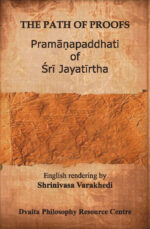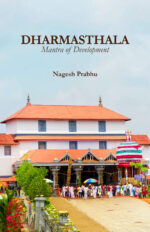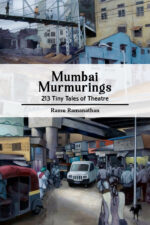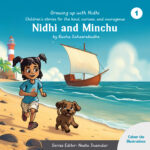-
The Gandhi Cap and Other Short Stories by Raja Radhikaraman Prasad Singh
₹345.00The book The Gandhi Cap and Other Short Stories offers a glimpse into the lifetime of work of a forgotten pioneer of Hindi fiction, Raja Radhikaraman Prasad Sinha. It is ironic that one cannot find a single book by this author who was so dedicated to Hindi literature. The stories in this collection are a testament not only to the contributions of Sinha to Hindi fiction but also, reflect the depth of political and social milieu of the times. Many readers will be moved by the elements patriotism, feminism, secularism, and spiritualism in these stories. Strong female characters are common in most of these stories. These characters provide both a moral fulcrum to the stories as well as reflect the struggle of women to balance prevailing customs with modernity. Some of these stories provide sharp political and social commentary that still have currency (The Gandhi Cap). Sinha incorporates a unique style of writing that uses lyrical prose and poetry together. He even employs a dialogue between the storyteller and a social gathering in the form of an epilogue, to offer a discourse on social dilemma about women?s plight to become modern while admonishing them to retain their Indian essence (An Expensive Bargain). We hope the readers will enjoy this wonderful collection.
-
The Path of Proofs: Pramanapaddhati of Sri Jayatirtha
₹250.00The Path of Proofs: Pramanapaddhati of Sri Jayatirtha Epistemology of the Dvaita school of thought is presented in this short monograph Pramanapaddhati the Path of Proofs, authored by Sri Jayatirtha. Epistemology is the science of knowledge that deals with the origin and nature of cognitive events and their means. Acarya Madhva, the proponent of the Dvaita school, has explained about the epistemology of this new school in his works. Since Madhva’s language is profound and the elucidations are scattered over his several works, it is difficult to comprehend for a novice. Hence, Pramanapaddhati was composed by his successor of third generation Sri Jayatirtha. The simple and captivating style of this work is sure to ignite the interest in the readers to conduct further study in detail. This work is not only regarded as a standard textbook of Dvaita studies, but also considered as a basic authentic work in the Dvaita dialectic literature. The work is classified into three chapters; Pratyaksa, Anumana and Agama as a compendious yet full treatment of the Dvaita epistemology in smaller captions. Its discussion on the standpoints of other schools on various topics and their criticism is not much detailed. However, it is systematized and presented in an easily comprehendible style that can make even a novice understand the intricacies of Dvaita epistemology. The unique commentary skill of Sri Jayatirtha comprises of profound scholarship, style of exposition, lucid language, commitment to the original author, views on opposition with thorough knowledge, logical integrity, appropriate and comprehensive method of thinking. This work is rendered into English by Prof Shrinivasa Varakhedi adopting the mirror-translation method.





